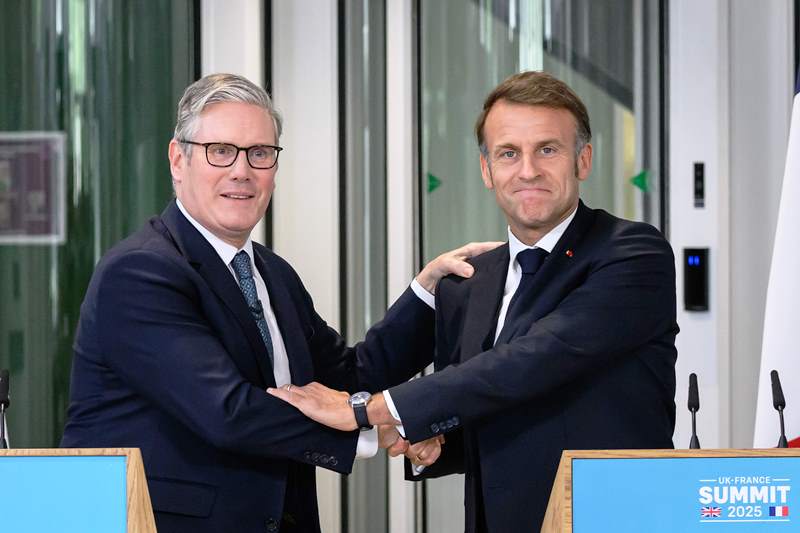British Prime Minister Keir Starmer and French President Emmanuel Macron unveiled a landmark migration agreement Thursday, capping a three-day state visit focused on bolstering defense cooperation and supporting Ukraine. The centerpiece of the deal—a “one in, one out” returns scheme—will see Britain deport undocumented Channel migrants to France while accepting an equal number of vetted asylum seekers with UK family ties. “This groundbreaking pilot will show those attempting the crossing that their journey is in vain,” Starmer declared alongside Macron at a joint press conference. The announcement delivers a political win for Starmer, whose government faces pressure to curb small boat arrivals that totaled over 35,000 last year.
While the agreement marks a symbolic hardening of migration policies, its immediate impact remains uncertain. The plan—projected to initially process just 50 returns weekly (2,600 annually)—requires approval from the European Commission and EU member states, a process officials acknowledge could take months. A government source suggested the program could expand, but critics note its current scope covers less than 8% of last year’s arrivals. The deal comes as Starmer’s Labour Party seeks to counter the rise of Nigel Farage’s anti-immigration Reform UK party, which has capitalized on public frustration with border security.
Beyond migration, the leaders announced strengthened defense ties including nuclear energy collaboration and a united stance on Ukraine. Macron emphasized that both nations stand ready to support Kyiv “whether in war or in a future ceasefire,” signaling long-term commitment amid Russia’s ongoing invasion. The French president’s pomp-filled visit—featuring a carriage procession with King Charles and a state banquet—highlighted efforts to reset Anglo-French relations after post-Brexit tensions. “Our partnership has entered a new strategic phase,” Macron said, praising Starmer’s “reliability” in contrast to the turbulent Boris Johnson era.
Analysts suggest the migration pact serves as much as political theater as policy solution, allowing Starmer to demonstrate action on a hot-button issue while Macron appeases domestic critics of France’s role as a transit country. With the Reform Party gaining in polls and French far-right leader Marine Le Pen eyeing the 2027 presidency, both leaders face electoral incentives to showcase border control measures. Yet the agreement’s limited scale and legal hurdles reveal the tightrope Western leaders walk—balancing voter demands for tougher immigration policies with the practical and humanitarian complexities of enforcement. As small boats continue crossing the Channel, the deal’s ultimate test will be whether it deters migrants or merely redistributes them.














